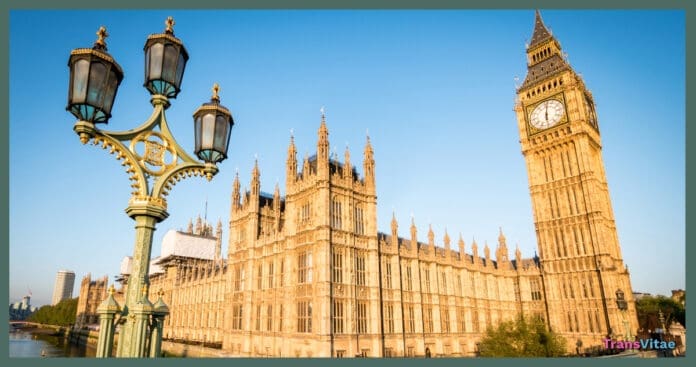In a deeply troubling move for transgender rights advocates, the UK House of Commons has issued a formal apology, not to the transgender woman who was confronted in a public space, but to the anti-trans campaigners who accosted her.
On June 11, Robin Moira White, a highly respected employment and discrimination law barrister who is also a transgender woman, was attending a Women and Equalities Committee hearing at Portcullis House. The hearing centered on recent developments stemming from a UK Supreme Court ruling that controversially redefined “sex” under the Equality Act 2010 as strictly “biological.” That ruling has ignited backlash for effectively laying the groundwork to exclude trans people from spaces that align with their gender identity.
Following the hearing, White requested to use the women’s restroom and was escorted there by staff, a routine act until she was confronted outside the facility by “gender-critical” campaigners Kate Harris, co-founder of LGB Alliance, and Heather Binning of the Women’s Rights Network. TransLucent, a trans advocacy group, stated that they “effectively ambushed” White, leading to a heated altercation.
Security intervened and informed Harris and Binning that parliamentary rules permit trans individuals to use facilities that align with their gender. The pair were then removed from the area.
Yet in a move that has sparked outrage among transgender advocates, the House of Commons later issued an apology to Harris and Binning in an email, stating it was “likely the individual you complained about should not have been directed to the female facilities.” White, who publicly condemned the hostility but refused to engage in the online vitriol that followed, received no apology.
Trans barrister White responded on social media, “All they are achieving is showing that attempting to ban trans people from gender-appropriate facilities is unnecessary, silly, impractical, and cruel in equal measure.”
This incident is not occurring in isolation. It comes amid a growing wave of institutional rollbacks on trans inclusion across the UK. The Equality and Human Rights Commission (EHRC) recently proposed new guidance that could make the exclusion of trans people from single-sex services not only easier but legal by next year. EHRC chair Baroness Kishwer Falkner testified that privacy rights for trans people “don’t apply” in gendered spaces, a declaration many see as a direct attack on the right to exist in public life without harassment or fear.
The parallels with the political climate in the United States are stark. Just as the UK Parliament begins mirroring anti-trans sentiment with policy shifts and procedural apologies that embolden discrimination, the U.S. House of Representatives, under Republican control, has aggressively targeted trans rights through bills aimed at restricting gender-affirming care, banning trans athletes, and limiting restroom access.
In both countries, legislative bodies that should be upholding civil rights are instead becoming arenas where trans existence is debated as a threat. The apology issued to Harris and Binning echoes the same institutional cowardice seen in the U.S. where “freedom of speech” is weaponized to excuse targeted harassment while trans people are expected to quietly endure.
White’s treatment in one of the UK’s most powerful institutions sends a chilling message: even when following the rules, trans people remain vulnerable to public scrutiny and institutional betrayal.
A mass lobby of MPs is set for June 25 and is expected to be the largest LGBTQ+ demonstration since the fight against Section 28. Organizers aim to push back against the EHRC’s new direction and remind Parliament that trans people deserve dignity, privacy, and protection, not apologies to their harassers.
As legislative bodies in both the UK and the U.S. flirt with rollback-era rhetoric and policy, the message from trans communities remains clear: We are not going back.


